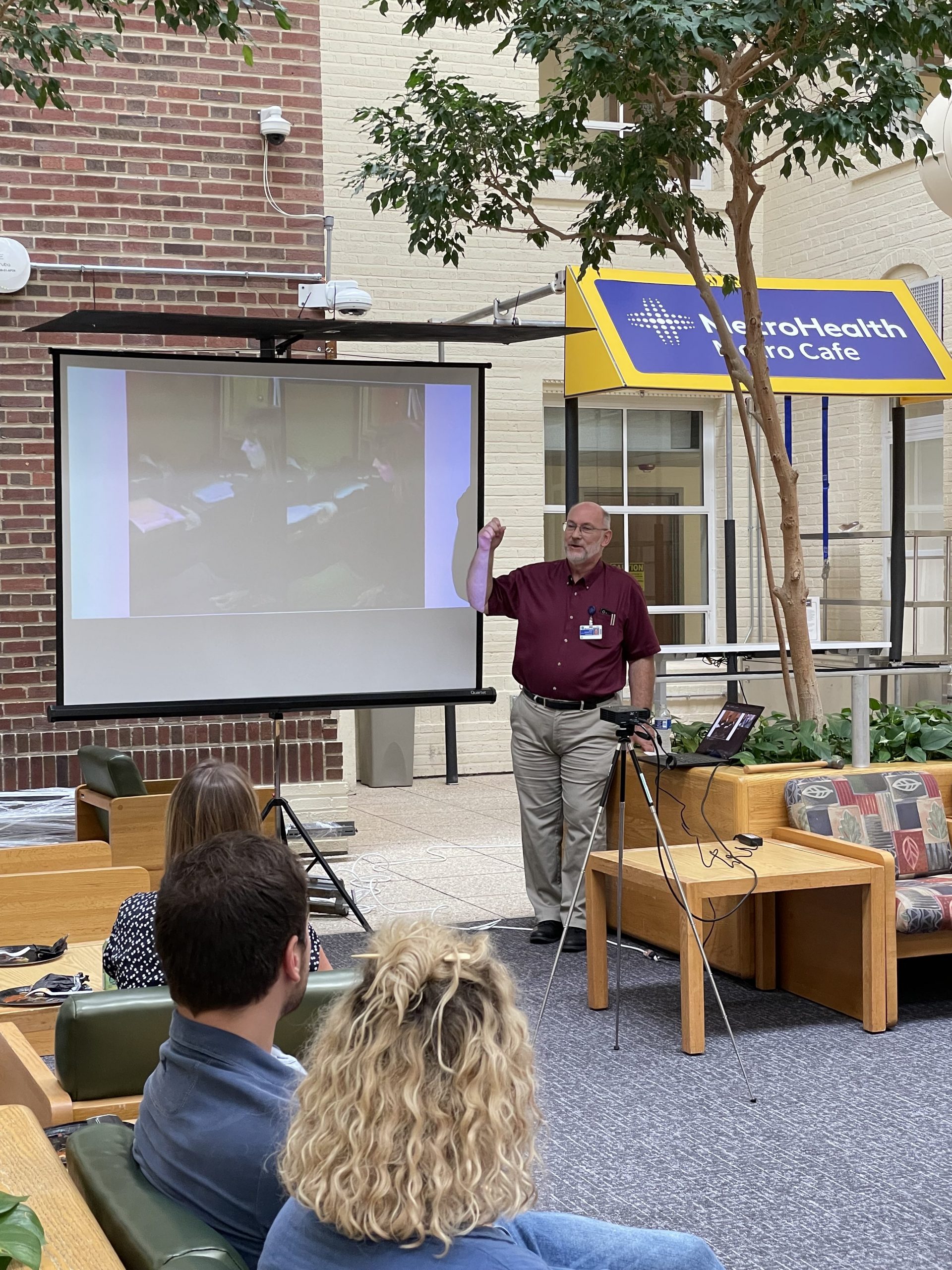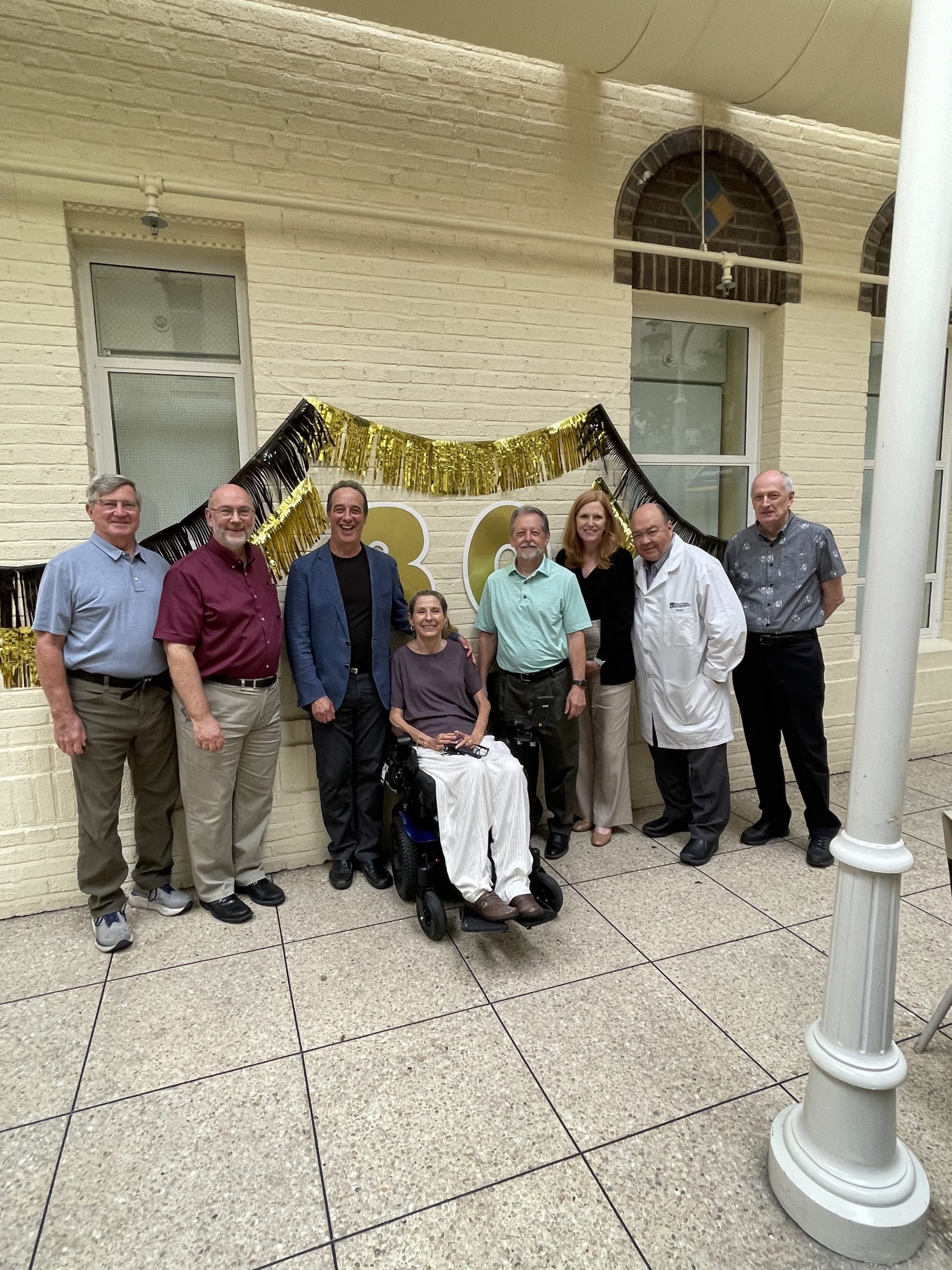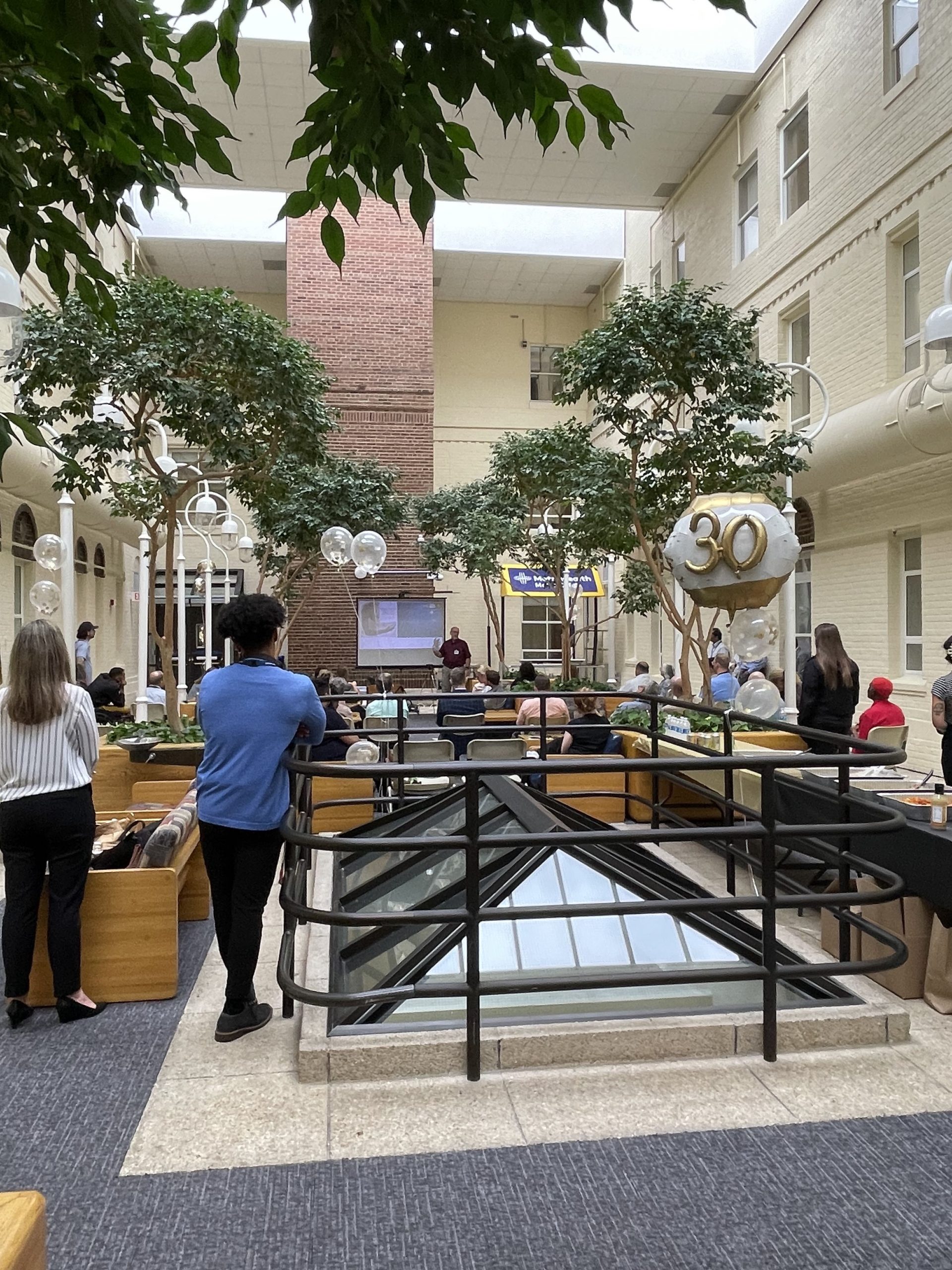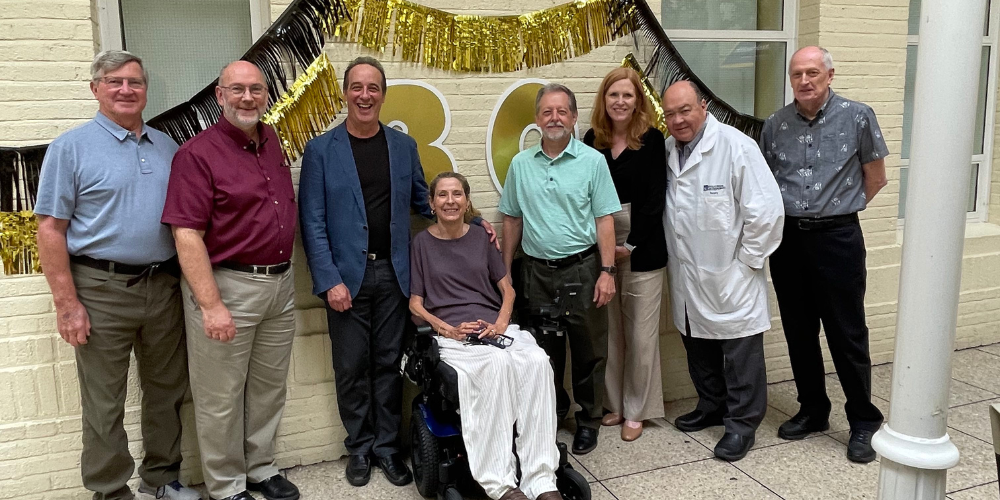From left, Hunter Peckham, PhD; Kevin Kilgore, PhD; Geoff Thrope; Jeanette Green; Ron Hart; Anne Bryden, PhD; Dr. Mike Keith, MD; Brian Smith.
Long-time study participant Jeanette Green of Washington, DC, says the engineers and clinical team at The MetroHealth System, Case Western Reserve University, and the Cleveland FES Center changed her life in 1994. That’s when researchers and clinicians at the institutions implanted an innovative electronic hand neuroprosthesis into her arm and upper body.
Jeanette, who recently retired from her job as a business analyst, sustained a spinal cord injury in 1989, paralyzing her from the neck down. Early surgical interventions did not restore function. In 1994, Jeanette opted to enter a multi-site study in Baltimore she had learned about through a spinal cord injury organization. The study focused on the implantation of a hand grasp neuroprosthesis developed in Cleveland for those with tetraplegia.
The implant proved to be a success, restoring Jeanette’s ability to manage many daily activities like feeding herself, getting ready in the morning, writing with a pen, and returning to work. It also paved the way for decades of continued research and advancements at the institutions.
On Monday, July 22, the staff and friends at MetroHealth Center of Rehabilitation Research at the hospital’s Rehabilitation Institute in Old Brooklyn gathered at a lunch celebration honoring Jeanette and the 30th anniversary of her implantation.
The MCRR team also hailed Jeanette as a pioneer who continues to use the longest continuously functioning motor neuroprosthesis and one of the longest functioning neuromodulation devices in the world.
Kevin Kilgore, PhD, a co-investigator on the original and ensuing studies, presented a history of the team’s work with Jeanette, who was implanted in Baltimore on June 1, 1994. She was the 18th participant in the multi-center study and the first participant in Baltimore.
Developed in Cleveland at MetroHealth and Case Western Reserve University, the neuroprosthesis was the vision of Hunter Peckham, PhD, founder of the Cleveland FES Center. Also part of the research team and present at the celebration were Mike Keith, MD, the training surgeon, and Geoff Thrope, technical lead on the system.
Kilgore recognized MetroHealth’s Brian Smith, Jim Buckett, and Fred Montague, who engineered the system; along with Anne Bryden, PhD, and Ron Hart who programmed the systems for each participant. Meanwhile Kilgore, a student of Peckham’s, executed the study and ensuing work with the help of countless trainees, clinicians and staff members. The system would later evolve to become the FDA-approved Freehand system, implanted in more than 200 people worldwide.
Kilgore said Jeanette’s system has been functioning for 30 years, rivaling many other long-running implants such as pacemakers, Cochlear implants, and bladder systems. He also marveled that while its external components have been replaced over the years, the original internal components remain intact and functioning for 30 years, logging some 130,000 hours of operating time.
Speaking on her 30 years with the system, Jeanette said it took time and practice to learn to use the system. She started with small tasks, like using a pen.
“Over the years, I figured out more things I could do. My arm got stronger, and my hand got stronger. Eventually I was able to hold a blow dryer to blow dry my hair. Later, when I got my service dog, I was able to put on his vest and his collar.”
At the celebration, Kilgore and his colleagues honored Jeanette for her many contributions to the research. Jeanette was quick to recognize the team’s achievements, too.
“They’re the ones who should be honored,” she said after the presentation. “They changed my life, giving me back the ability to use my hand again and to be more independent.”
– Jeanette Green










